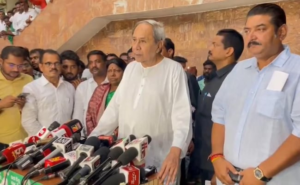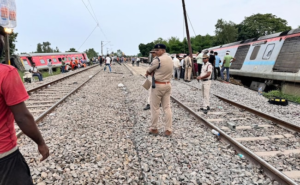
The issue of Khalistani terrorist Gurpatwant Singh Pannun will not affect India-US relationship, US envoy to India Eric Garcetti told NDTV today. Calling the ties “the most consequential relationship” passing through a “historic era”, he likened it to a marriage, with its inevitable fights and disagreements.
“How we manage those moments defines the strength of a relationship,” he said. And for naysayers who predict a roadblock, “I would say… our work every single day at the embassy, every single day at the Ministry of External Affairs, the Indian Embassy in Washington, has not slowed down one bit,” he told NDTV in an exclusive interview.
“It continues to accelerate because we want this relationship, we need this relationship, and we have this relationship,” he said.
In November last year, The US Department of Justice had alleged a foiled plot to murder Pannun, a US-based Sikh separatist. The state department had alleged that India was involved in the plot and accused an Indian government employee of being part of the conspiracy.
Asked what the US is doing to address concerns about anti-India activities by Khalistanis from foreign soil, Mr Garcetti cited diversity — “religious, cultural or linguistic” — and invoked the right to free speech in a democracy.
“We also know we should be focusing on what people do when they cross the line legal behaviour. No matter what the source, there needs to be accountability. What people say can be disturbing. But it’s what people do that breaks the law,” he added.
Asked about the recent controversy over a report of the US Commission on International Religious Freedom, Mr Garcetti also said democracy and diverse populations are “difficult things to manage”, but living without them is not an option.
New Delhi had criticised the report, saying it comes from a “biased organisation with a political agenda”. The report was also red-flagged by Russia, which said it was an example of the US interfering in Indian affairs.
The Commission, in the annual report, had criticised India for alleged violations of religious freedom and asked the US state department to declare it as a “Country of Particular Concern”.
“I know that America and that India are committed to managing the diversity, whether that’s religious, cultural or linguistic of both of our countries, and showing that we live in democracies, not dictatorships, where we are free to speak not only those good moments, but also criticisms when necessary,” Mr Garcetti said.
The US, he suggested, remains on the side of caution – a stance “that comes from a place of humility where we criticise our own selves and say, ‘What would you do better’ “.
“So this independent commission looks all around the world at instances which might or might not be government generated. They might just be between communities, sometimes where we know prejudice exists between human beings and we highlight where those things are,” he added.



